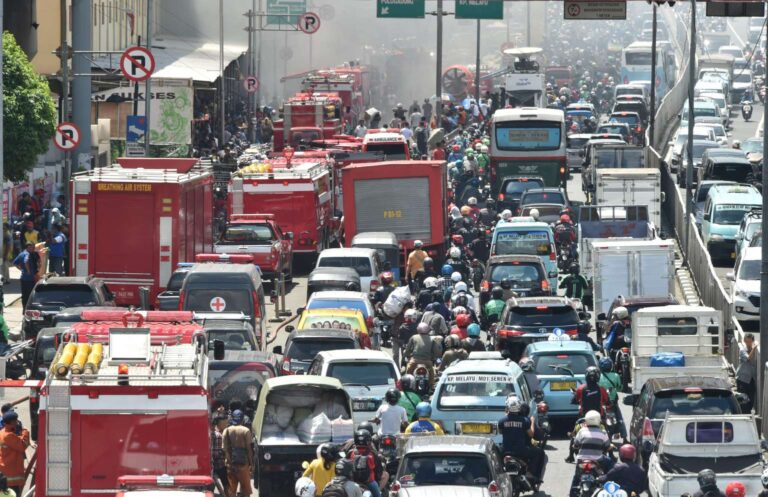The Toyota Mobility Foundation has joined a project that aims to ease traffic congestion on Bangkok’s Rama4 Road in Thailand.
Known as the Rama4 Model, the project includes Thailand’s Ministry of Transport, Bangkok Metropolitan Administration, Metropolitan Police Bureau, Chulalongkorn University, and Grab (Taxi) Thailand.
The project was initiated as an extension of the Sathorn Model, which took place from 2015 to 2017 and reportedly achieved positive results through implementation of a variety of countermeasures.
These included traffic signal control optimisations, the introduction of smart shuttle services, flexible working time, park and ride, and more, which enabled the development of a clear roadmap to counter congestion. The partners subsequently submitted this to the Thai government for implementation across the city.
The Rama4 Model project, which will be funded through a grant of approximately ฿50m (£1.2m) from Toyota Mobility Foundation to Chulalongkorn University, is scheduled to last about 18 months from November 2019 through early 2021.
The trial will study and test the ability to use advanced data-driven solutions that can ease traffic congestion on the Rama4 Road, which was selected as the test location due to being one of the most congested areas in Bangkok.
A critical component of the project is the effective usage of huge and diverse sets of data from several sources such as GPS data from Grab Taxi and public buses, CCTV footage and multiple sensors. This data will be combined with new technology for analysis (AI and Machine Learning) and knowledge from mobility and technology experts from private and academic entities such as Chulalongkorn University, ITIC, AIT, Siametrics and Waycare.
The project will seek to understand and visualise current traffic conditions and status, deeply comprehend trends and patterns to predict future traffic issues, and eventually gain insights for the design of traffic management systems, transportation networks and city planning adaptations.





